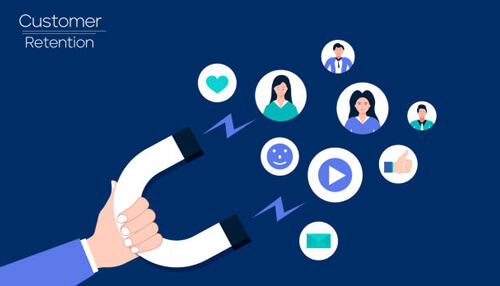OmniChannel marketing involves marketing strategies that are deployed across diverse platforms. It allows you to connect with prospects and customers in various ways that they deem to be valuable. Doing it the correct way will deliver a cohesive brand message and enhance the user experience to prompt people to take appropriate actions. It places customers first and undertakes thorough research to develop a unified, seamless experience.
More about OmniChannel marketing
Customers can be offered a well-integrated shopping experience ranging from virtual stores to physical stores. It includes mobile applications along with a variety of possibilities provided by both the online and offline worlds. No longer can the consumer industry choose to ignore a few new trends that have revolutionized the whole industry. It includes the digital revolution, millennial buying habits, mistrust, e-commerce giants, etc. It is high time to stay updated and take an omnichannel approach towards trade marketing and sales.
Know the benefits
1. Turnover increase:
Studies conducted have revealed that omnichannel consumers are considered to be 30 percent more valuable. The fact is that although repeat customers comprise just 8 percent of the total base, the revenue they create is over 40 percent.
2. Improved customer retention rates:
Consumers prefer to shop in a manner that they find quite convenient. The right approach to be taken to deal with the different means that they use is to derive an omnichannel experience. Businesses adopting cross-channel marketing strategies consistently tend to enjoy annual improvements in retaining customers by about 13%.
3. Increase in recommendations and references:
Word of mouth still seems to rule the marketing world. Hence, great effort should be put into improving brand awareness and reputation. This is besides advertising and marketing efforts taken. 91% of consumers, as per studies conducted, tend to trust their family, friends, and colleagues to shop for a particular brand of product or service. Thus, an omnichannel business strategy should be implemented to derive the best results.
4. Client satisfaction:
A satisfied client is sure to recommend your products and services to others. Remember, this strategy should be part of your Business Plan and work in two ways and not just move in a single direction. Customers do check your products and buy them. At the same time, they also expect companies to offer better service through any of their desired channels. The facts are:
-
- 75% of customers can be retained by providing them with quality service.
- 64% of customers expect companies to offer prompt, real-time customer support on their desired channels.
5. Enhanced customer data collection:
It has become much easier for companies to monitor their customers across the diverse channels used. Thus, this business strategy when implemented properly can help get a better understanding of their preferences, product cards that customers check out, offers clicked, etc. This ensures proper customization of promotions and communications derived from each client. They will also feel special and taken proper care of. It automatically boosts Customer Retention.
6. Enhanced efficiency:
Customers should be offered a centralized and comprehensive database. It should be easily accessible across multiple channels, thus improving the visibility of promotions and products. Also, all vital information should be made available. 81% of consumers can be found to check and compare their friends’ posts before visiting any physical store for shopping.
7. Connecting online/offline experience:
Business Plans should not only include offline and online presence but also ensure everything is interconnected. The ultimate goal is not to generate sales in certain channels. Rather, the need is to ensure purchases take place fluently and naturally in your customer-chosen channel.
Hence, you need to know all about OmniChannel marketing and what benefits your small business derives from it.



